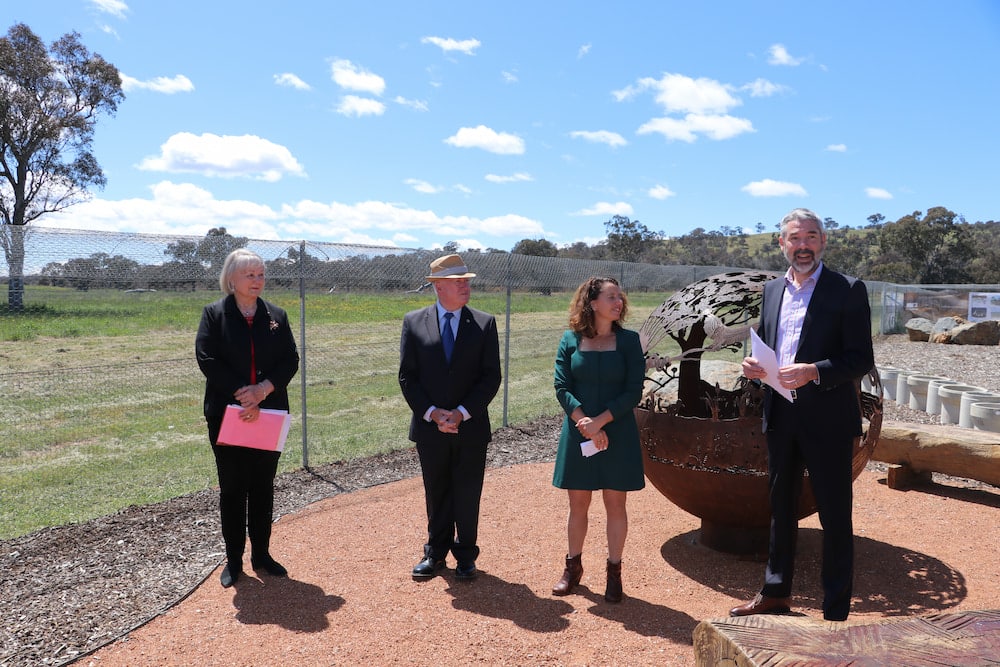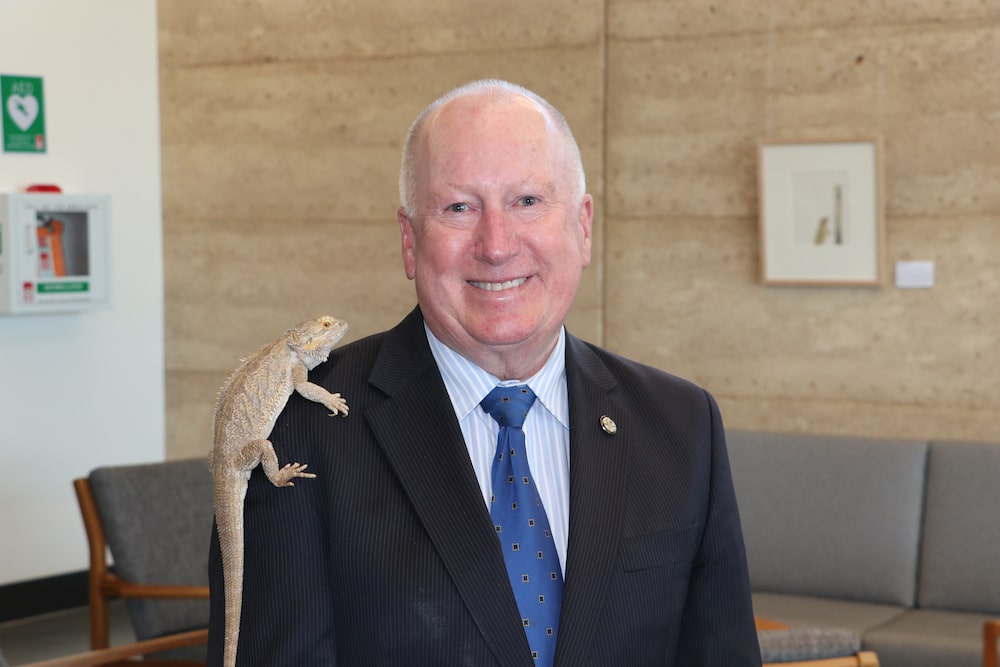Visiting Mulligan’s Flat Woodland Sanctuary is almost like looking into history, says Rebecca Vassarotti, ACT Minister for the Environment. The largest area (1,200 hectares) of critically endangered box-gum grassy woodland in Australia managed for conservation, it represents what Canberra used to look like before colonisation.
It is also home to endangered species that were endemic in the ACT a century ago: smoky mice, eastern bettongs, and eastern quolls – creatures the ACT Government hopes to reintroduce into the city’s nature areas. It is Australia’s first conservation area free of foxes, cats, rabbits, and hares; fences protect wildlife from introduced predators and vermin.
A new nature reserve and learning centre, Wildbark, opened today, will serve as a gateway to the sanctuary for the public.

It is the result of years of collaborative hard work led by the Woodlands and Wetlands Trust, which manages the sanctuary and Jerrabomberra Wetlands, with support from the ACT Government, the Australian National University, and the Odonata Foundation, said Mick Gentleman, ACT Minister for Planning and Land Management.
The ACT Government provided $1.6 million for the centre.
The government also launched a new 30-year strategy for the sanctuary to protect the environment and keep Mulligan’s Flat’s finances going into the future, Mr Gentleman said.
Allison Russell-French, president of the Woodlands and Wetlands Trust, which manages the sanctuary and Jerrabomberra Wetlands, is delighted the centre is open. It was originally meant to be ready in 2020, but the pandemic delayed it.
“This building is just fantastic,” Ms Russell-French said. “We’re so pleased and proud to have it now open and operating. It’s going to continue to grow.”

Visitors will be able to learn about conservation and restoration work at Mulligan’s Flat. There will be regular animal talks, lizard and turtle feeding, and story time sessions featuring books by Australian authors.
“Wildbark can teach lessons about how to look after nature, how we learn from nature, and the history of species that were here and are now back in the nature reserve,” Mr Gentleman said. Wildbark would be “a great educational facility for us into the future to be able to show our kids and their kids what it was like originally here in Canberra”.
Hearing a bush stone-curlew, a bird he had not heard since he was seven, brought back “fantastic memories” of his own childhood.

The public can also go on historical walks during the day and twilight tours of the sanctuary, some led by Ngunnawal people. It is, Mr Gentleman believes, an opportunity to teach more about Aboriginal culture, as the new strategy recommends.
“Ngunnawal people have been there for more than 30,000 years,” he said. “We want to hear more about the way that they looked after the land, particularly for my interest around grass control of individual fires.”
Wildbark has a café serving food, coffee and cake. Visitors can catch up with friends and learn about the natural environment and the bush capital, Ms Vassarotti said.
“We want a community where the natural landscape and the urban landscape meet in great harmony. We want to have a community that really loves and nurtures and will look after this natural environment. We are the bush capital, and this is a real opportunity for us to showcase, highlight, and learn more about it.”
The centre can also be booked for functions. All profits will go back to conservation, research, and education, Ms Russell-French said.
Get local, national and world news, plus sport, entertainment, lifestyle, competitions and more delivered straight to your inbox with the Canberra Daily Daily Newsletter. Sign up here.



